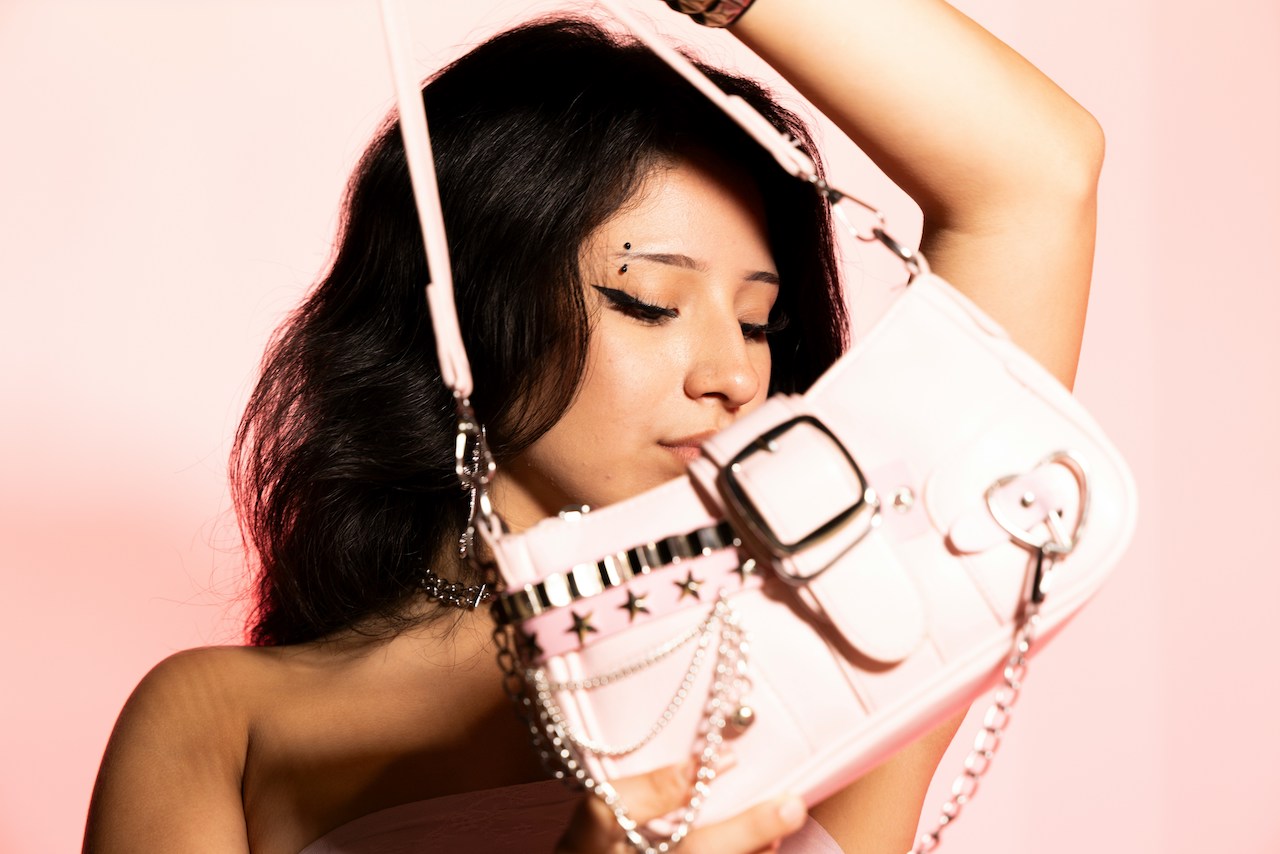Words by Georgina Hookway
Art courtesy of Pomona Pr
Before the 21st century, music was consumed via records and cassettes, and through live concerts and videos. It was harder for artists to interact with their fans and buying your favourite artist’s merch was something you could only do in-person. Whilst the World Wide Web has been around since 1989, it wasn’t until the 2000s, when sites such as MySpace and LimeWire became popular, that music truly began to be shaped by the internet.
MySpace was the largest social networking site worldwide between 2005 and 2008, with over 100 million monthly users during this period. The site proved popular for many musicians, with the music feature allowing users to listen to and upload songs. Many artists gained their initial popularity via MySpace. Adele, for example, gained popularity after her songs were posted to the site and she was soon signed to XL Recordings, releasing her debut album 19 less than a year later. Charli XCX is another example of an artist who began their career on MySpace. She regularly posted songs and soon began to get noticed by the organisers of parties and raves, and she started booking small gigs.
Despite Myspace’s decline in popularity in 2008, the site has left a big imprint on the industry, and it still seems to have a legacy within the music sector. In recent years, there has been a rise in pop music inspired by the ÔÇÿMcBling’ aesthetic era of the 2000s, with artists including Ayesha Erotica and Slayyyter being at the core of it. The music feels almost as if it’s an homage to the MySpace period of the internet.
With the popularity of MySpace and LimeWire decreasing towards the late 2000s, this meant there was a gap in the market for a new form of social media. YouTube, Instagram, and Twitter soon rose to popularity, and artists began promoting their music on these platforms instead. YouTube in particular has had a big impact on the music industry, with major artists such as Shawn Mendes and Carly Rae Jepsen being discovered on the site, being discovered from their uploads of covers and original music, very similarly to MySpace.
Streaming services, such as Spotify and Soundcloud, gained traction towards the end of the 2000s, and became part of mainstream culture in the 2010s. Whilst Spotify was more aimed towards already established musicians, Soundcloud appeared to be more user-friendly and geared towards a wider audience of aspiring and emerging artists. Rappers in particular chose to upload their music to Soundcloud, which in turn created the genre which has now been dubbed ÔÇÿSoundcloud rap’.
A more recent social media platform, TikTok, has had a massive impact on the music industry, with the app’s unparalleled ability to turn a relatively unknown song into a major hit. For example, Doja Cat’s ÔÇÿSay So’, off her 2019 album Hot Pink was known mostly by those who were already fans of her until a TikTok user created a dance for the song, which went viral. This led to the song rapidly gaining traction, and following the success of the song, Doja Cat released a remix, featuring Nicki Minaj, which reached the top of the US Billboard chart.
A plethora of genres have risen from the internet; Soundcloud rap, bedroom pop, hyperpop, and vapourwave to name just a few. Whilst Soundcloud rap and vapourwave have been around since the early 2010s, bedroom pop and hyperpop are relatively new genres. Hyperpop in particular has gained a lot of attention over the past couple of years, with artists such as 100 gecs and Danny L Harle being some of the most well-known.
With the pandemic, musicians had to find new ways to engage with fans and the internet proved to be incredibly useful. Charli XCX for example wrote an entire album, titled How I’m Feeling Now,in quarantine, holding zoom meetings with fans to ask their opinions and thoughts, and asking fans to tweet her their artwork, some of which was later put into a book about the album’s production. Charli also made a documentary about the album’s production process, called Alone Together, which premieres at SXSW film festival in March this year.
The pandemic has also meant that in-person live performances have been forced to halt, and therefore artists have had to come up with new ways to perform. Some have chosen to live-stream straight from their bedroom, while some have been part of music festivals held on gaming sites such as Minecraft and Roblox.
With the new-found internet resiliance that the pandemic has brought to the music industry, it is hard to tell what will happen next within the music scene and sector. The industry and the internet seem more intertwined than ever, and it seems this is unlikely to change.


